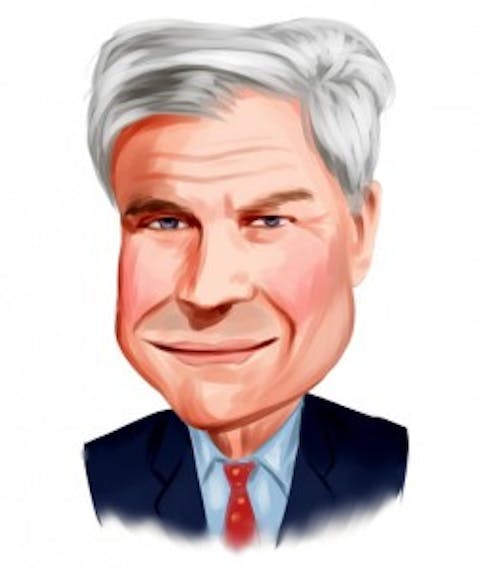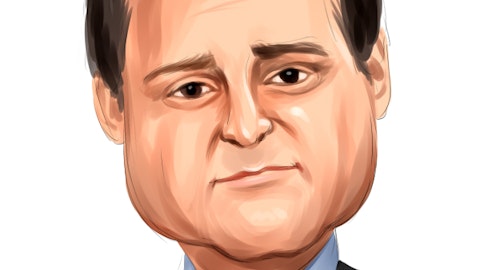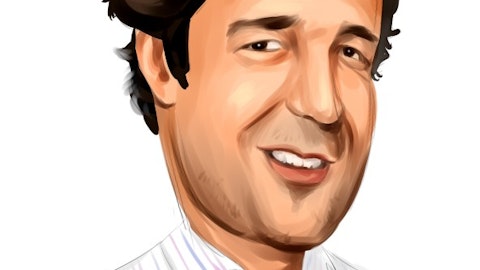
Delta Air Lines, Inc. (NYSE:DAL)
Delta Air Lines is Heebner’s top 13F holding, and accounts for more than 5% of the manager’s portfolio. Altogether, the position is worth $215.5 million. In 2012 thus far, Delta has been a good investment for Heebner and other airline bulls like Michael Messner and John Griffin, as it has returned 26.0%. The company impressed the markets with its Q1 financial results, meeting EPS estimates and beating the Street’s top line forecast. In the second quarter, however, mistimed hedges against oil prices backfired, causing Delta to lose $168 million in the period versus net income of $198 million at the same time last year. Adjusted EPS did come in at 69 cents, though, and the airline still expects to finish the year with earnings of $1.96. Delta trades at a PEG ratio of 1.1 and an earnings multiple that is 33.1% below its industry’s average.
Citigroup Inc. (NYSE:C)
You’re probably noticing a trend here, as Citigroup is Heebner’s second largest holding, which totaled $178 million at the end of last quarter. Unless you’ve been living under a rock this week, you probably know that the company’s CEO Vikram Pandit made a surprising move to step down on October 16th. Pandit says that the move to leave Citigroup was his and his alone, though there are rumors that an ongoing clash with the company’s board over the role of its COO, and compensation packages. Since the move, shares of Citigroup are up over 4.8%, indicating that the markets have deemed CEO Mike Corbat an adequate successor to Pandit.
The company also beat the Street’s earnings estimates, but there has been lengthy discussion on the reliability of these results, with some analysts going as far as calling them “gimmicks.” No matter how the quarterly financials look, one thing is clear: now is an important crossroads for the bank, as analysts are essentially split on what the future holds for the stock. Investment banking firm CLSA has upgraded the stock with a price target of $43 by Christmas, while UBS and Sterne Agee reiterated their “neutral” ratings on Citigroup, expecting stagnancy over intermediate term. Either way, this stock trades at or near all of its historical values with regard to earnings, book, and cash flow multiples.
United Continental Holdings Inc (NYSE:UAL)
Last but certainly not least, United Continental Holdings is Heebner’s third stock in his 13F portfolio. The fund’s position in the airliner was worth over $170 million at the end of last quarter, and has returned 9.3% since the start of the year. In terms of valuation, United Continental trades at a particularly high P/E ratio of 18.1X, which is above Delta (9.3X), and other peers like US Airways Group, Inc. (NYSE:LCC) at 4.8X, and Alaska Air Group, Inc. (NYSE:ALK) at 11.0X. In comparison to its own historical P/E, United Continental is trading at an additional premium of 127%, which is more expensive than the likes of Delta (+126%), US Airways (+60%), and Alaska Air (+83%).
Over the past five years, earnings at United Continental have wilted quite significantly, shrinking at an average rate of 59.1% a year, but forward-looking estimates look promising. Provided it can avoid the passenger delays, computer glitches, and other service delays that caused an ugly EPS miss this summer, analysts are expecting the airliner to grow its bottom line at 15.4% a year over the next half-decade. These predictions compare unfavorably to Delta (36.0%), US Airways (71.4%), and Alaska Air (21.1%), but the stock is trading at a deeply discounted PEG of 0.51; typically any figure below 1.0 signals undervaluation.
While it’s tempting believe that mega-managers like Ken Heebner are not common-folk investors and thus should not be emulated, empirical studies have actually shown that individuals who mimic or “monkey” the world’s mot successful hedge funds can outperform the market by 7% a year. Take a look for yourself.





